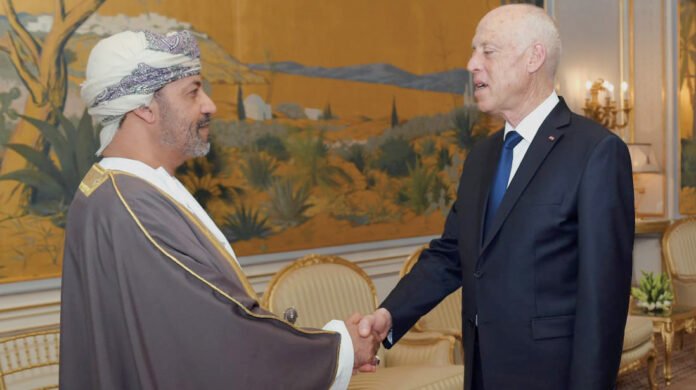President Kais Saied of Tunisia welcomed Sayyid Hamoud bin Faisal Al Busaidi, the Omani Minister of Interior, to the Presidential Palace today. The meeting took place during the 42nd session of the Arab Interior Ministers Council. This session brought together various Arab countries to discuss crucial security matters.
Minister Al Busaidi extended greetings and warm wishes from His Majesty Sultan Haitham bin Tarik to President Saied and the people of Tunisia. In return, President Saied asked the Omani minister to pass on his best regards to His Majesty the Sultan and to the people of Oman. The exchange highlighted the strong diplomatic ties between the two nations. It reflected their mutual respect within the Arab Interior Ministers Council.
During the meeting, President Saied praised the important role of the Arab Interior Ministers Council. He noted that the council plays a vital role in enhancing security cooperation across the Arab world. Saied expressed his hopes that the 42nd session would successfully address the security needs. He also addressed the aspirations of both Arab leaders and their citizens.
The discussions centered on how Arab nations can strengthen security frameworks and improve cooperation among them. The focus of the session was on ensuring the safety and stability of the region. President Saied reiterated Tunisia’s commitment to supporting the council’s efforts. These efforts, led by the Arab Interior Ministers Council, aim to maintain peace and address regional challenges.
As the meeting concluded, both leaders emphasized the importance of ongoing collaboration and the exchange of ideas between Arab countries. The dialogue underscored the shared responsibility of Arab nations to protect the safety of their citizens. Furthermore, they aim to face common security threats together. This unity is a cornerstone of the Arab Interior Ministers Council.
This meeting marks another significant step in strengthening the role of the Arab Interior Ministers Council in regional security. The council continues to serve as a crucial platform for fostering coordination among member states. It works toward the shared goal of regional peace and stability.


